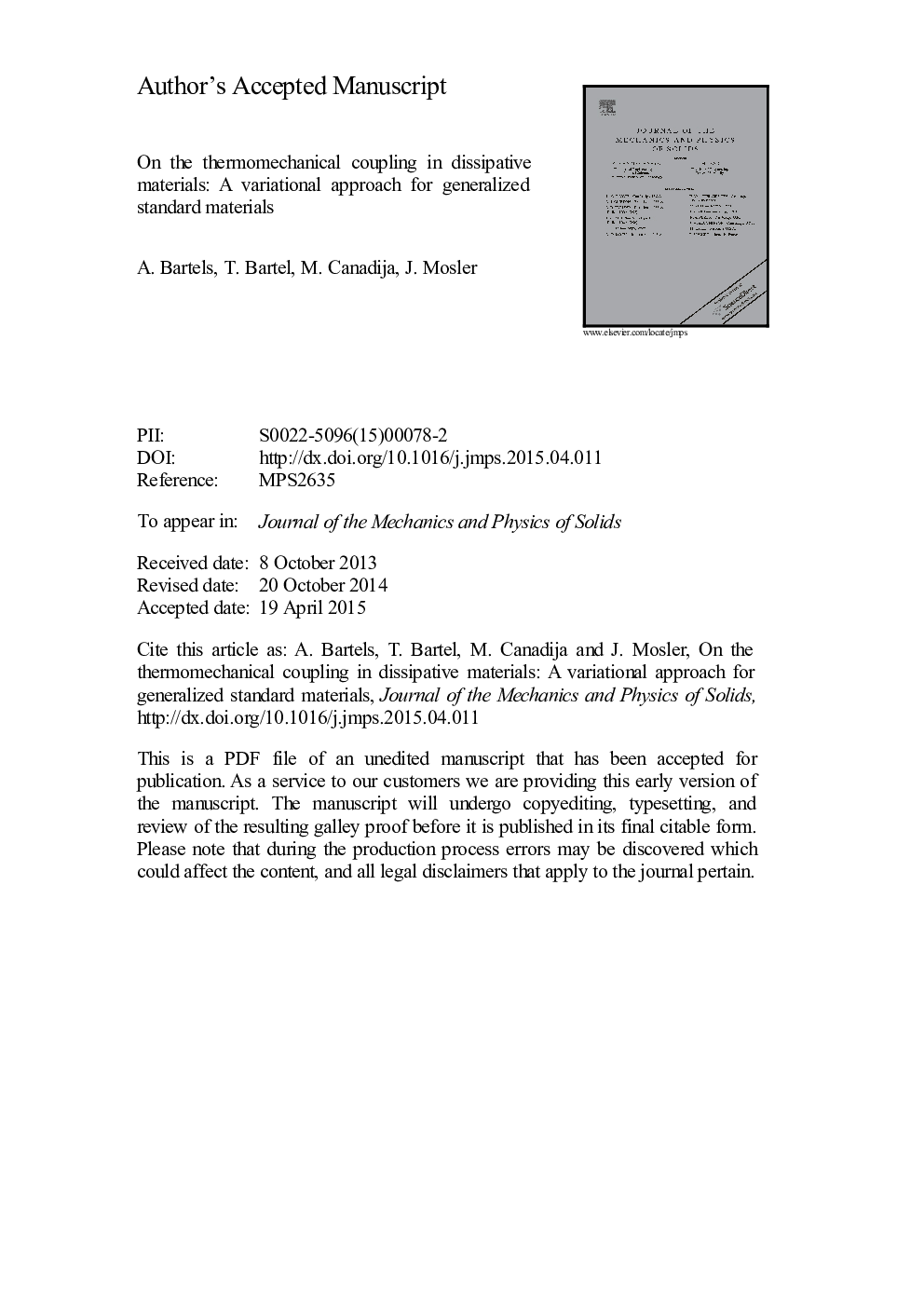| Article ID | Journal | Published Year | Pages | File Type |
|---|---|---|---|---|
| 7177995 | Journal of the Mechanics and Physics of Solids | 2015 | 27 Pages |
Abstract
This paper deals with the thermomechanical coupling in dissipative materials. The focus lies on finite strain plasticity theory and the temperature increase resulting from plastic deformation. For this type of problem, two fundamentally different modeling approaches can be found in the literature: (a) models based on thermodynamical considerations and (b) models based on the so-called Taylor-Quinney factor. While a naive straightforward implementation of thermodynamically consistent approaches usually leads to an over-prediction of the temperature increase due to plastic deformation, models relying on the Taylor-Quinney factor often violate fundamental physical principles such as the first and the second law of thermodynamics. In this paper, a thermodynamically consistent framework is elaborated which indeed allows the realistic prediction of the temperature evolution. In contrast to previously proposed frameworks, it is based on a fully three-dimensional, finite strain setting and it naturally covers coupled isotropic and kinematic hardening - also based on non-associative evolution equations. Considering a variationally consistent description based on incremental energy minimization, it is shown that the aforementioned problem (thermodynamical consistency and a realistic temperature prediction) is essentially equivalent to correctly defining the decomposition of the total energy into stored and dissipative parts. Interestingly, this decomposition shows strong analogies to the Taylor-Quinney factor. In this respect, the Taylor-Quinney factor can be well motivated from a physical point of view. Furthermore, certain intervals for this factor can be derived in order to guarantee that fundamental physically principles are fulfilled a priori. Representative examples demonstrate the predictive capabilities of the final constitutive modeling framework.
Related Topics
Physical Sciences and Engineering
Engineering
Mechanical Engineering
Authors
A. Bartels, T. Bartel, M. Canadija, J. Mosler,
